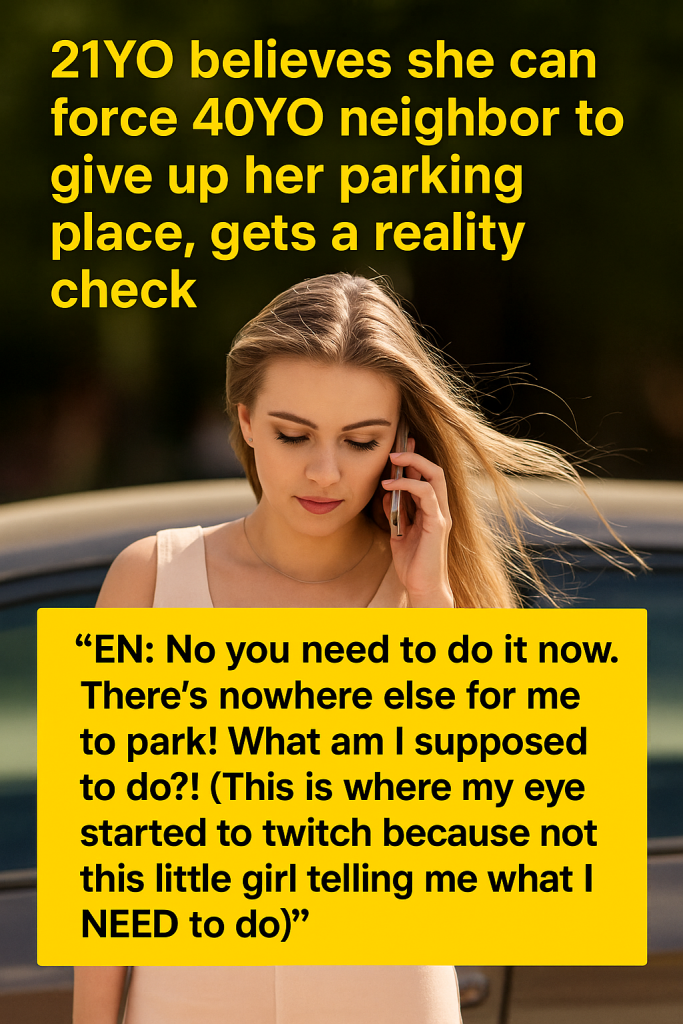In a neighborhood dispute that has caught the attention of many social media users, a 21-year-old woman’s attempt to claim a parking spot from her 40-year-old neighbor has sparked a heated confrontation — and an important lesson in respect and boundaries.
The incident unfolded in a busy residential area where parking is a coveted commodity. The younger woman, reportedly frustrated by the lack of available spots near her home, approached her neighbor with the ultimatum that she should relinquish her parking space immediately. The demand was met not with compliance, but with a calm yet firm reality check that quickly shifted the dynamic between the two neighbors.
According to eyewitnesses and posts circulating online, the 21-year-old openly declared her belief that she had the right to the parking space, asserting that since she was younger and newer to the neighborhood, the older resident should give it up. The 40-year-old neighbor responded by explaining that parking rights in the area are first-come, first-served, and that none of the spaces are reserved privately. More importantly, she reminded the younger woman that mutual respect and consideration are essential in any community setting, especially when it comes to shared public resources.
What made this dispute especially notable was the younger woman’s initial insistence and entitlement, which led to a brief verbal confrontation. However, after a few tense moments, the 21-year-old appeared to reconsider her stance as neighbors nearby offered their perspectives on fairness and community etiquette.
Parking disputes like this one are not uncommon in urban and suburban neighborhoods where street parking is limited and competition can be fierce. Yet, the viral nature of this particular encounter highlights how generational attitudes toward community and conflict resolution can differ dramatically.
Experts on neighborhood conflicts note that assertiveness is understandable when resources are scarce, but empathy and awareness of established norms play critical roles in maintaining good neighborly relations. “It’s key to approach these situations with humility and a willingness to compromise,” one community mediator remarked. “Creating a hostile environment doesn’t solve parking problems — it only builds resentment.”
Social media users engaging with the story have been divided. Some sympathize with the young woman’s frustration over parking scarcity, while many sides with the older neighbor’s insistence on fairness and patience.
The exchange serves as a reminder that while parking can be a daily battle in many communities, navigating these disputes successfully depends on communication and respect, rather than forceful demands or assumptions of entitlement.
For now, the 40-year-old continues to park in her usual spot, and the 21-year-old has learned a valuable lesson — sometimes the reality check comes from simply respecting others’ space and understanding that age or seniority in a neighborhood does not grant unearned privileges.
As urban living becomes more competitive, stories like this demonstrate that resolving small conflicts with empathy and dialogue is more effective than attempting to claim what isn’t rightfully yours by force.



